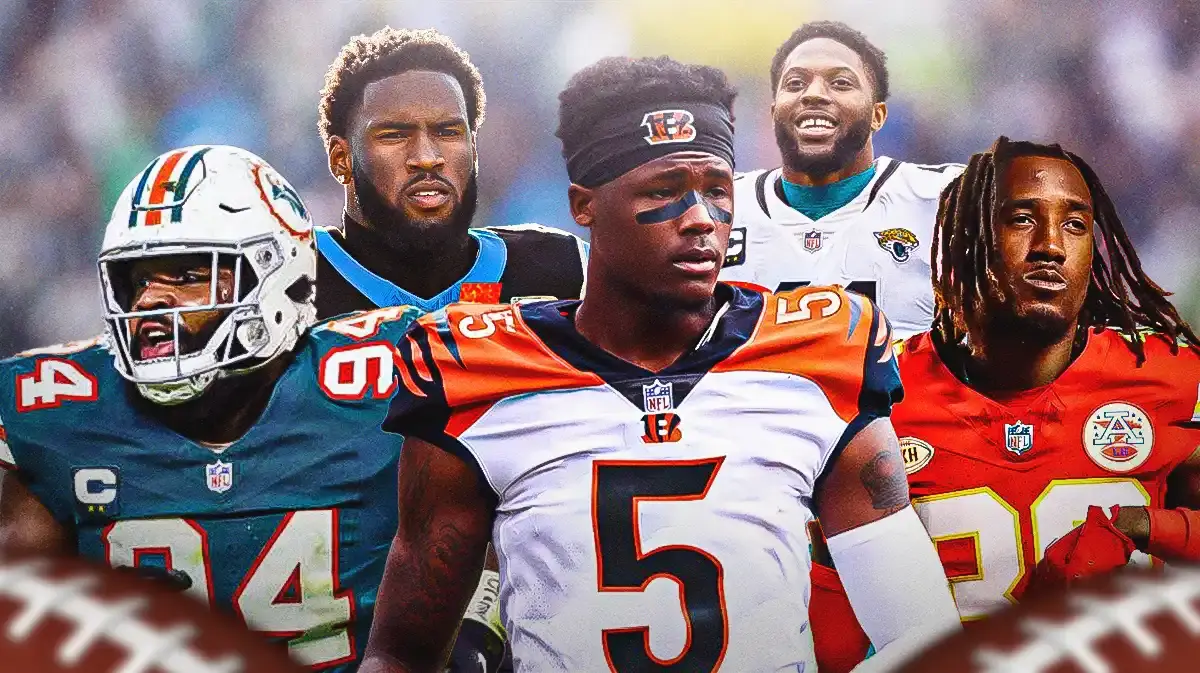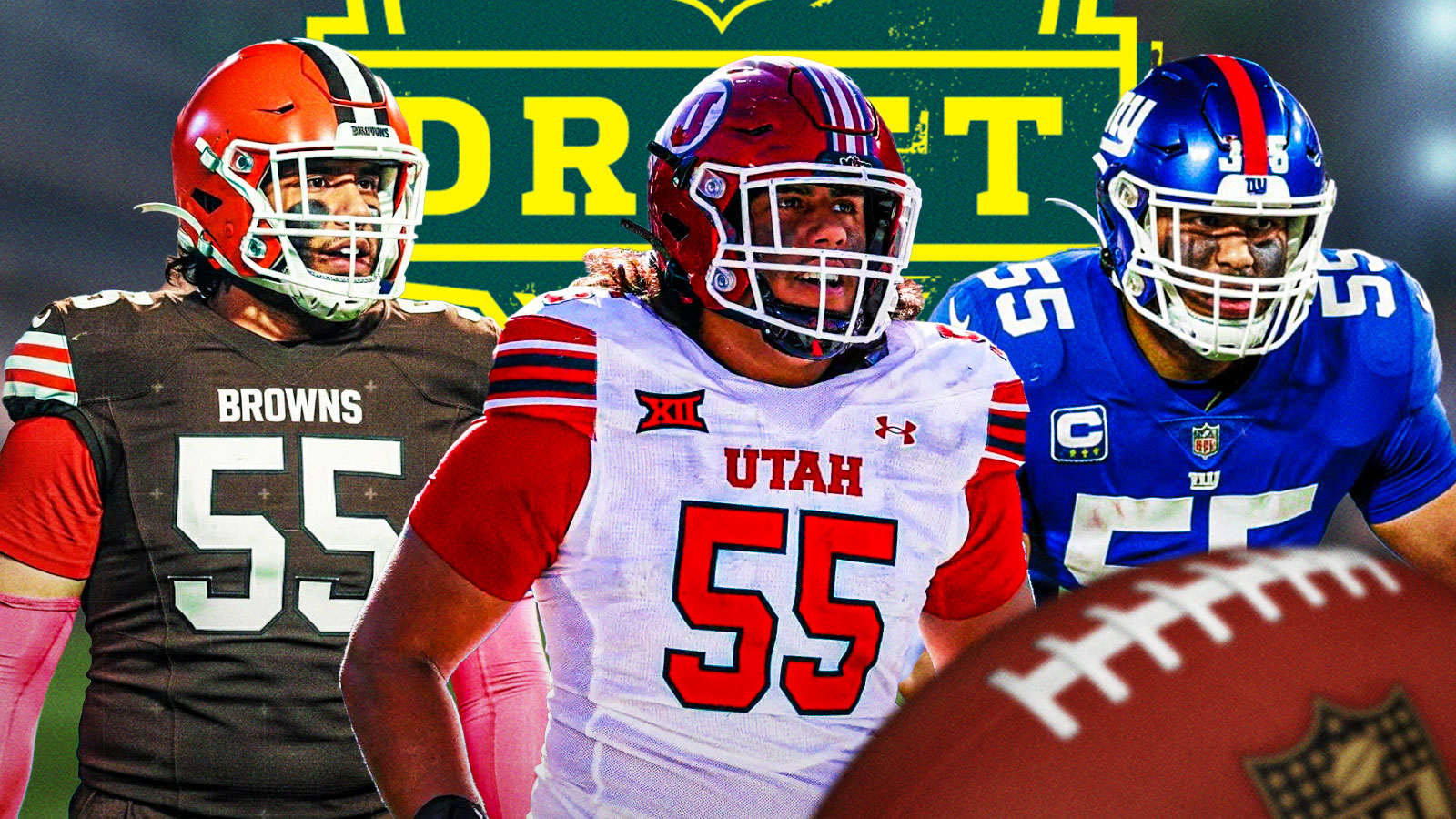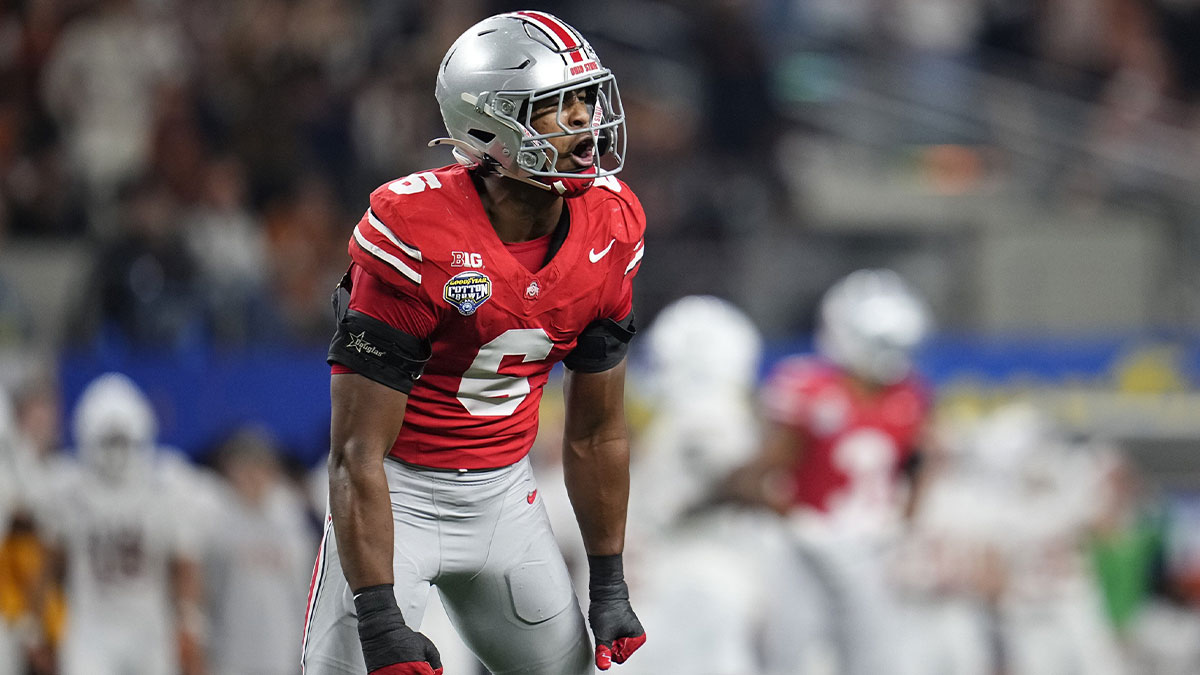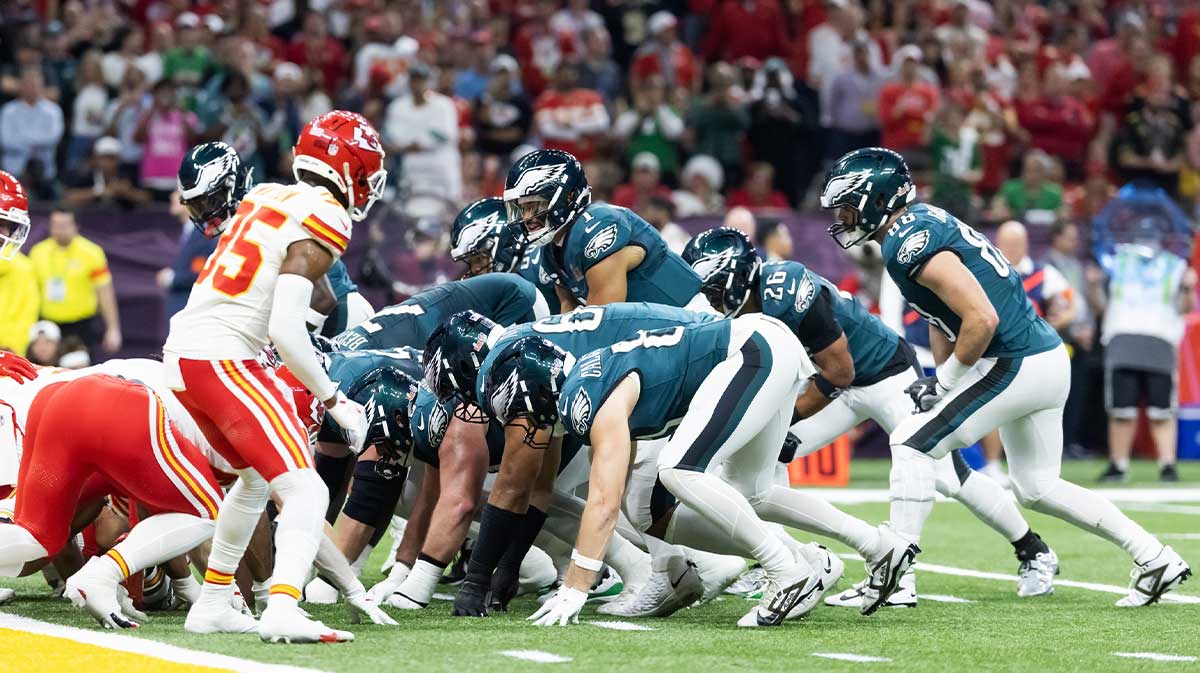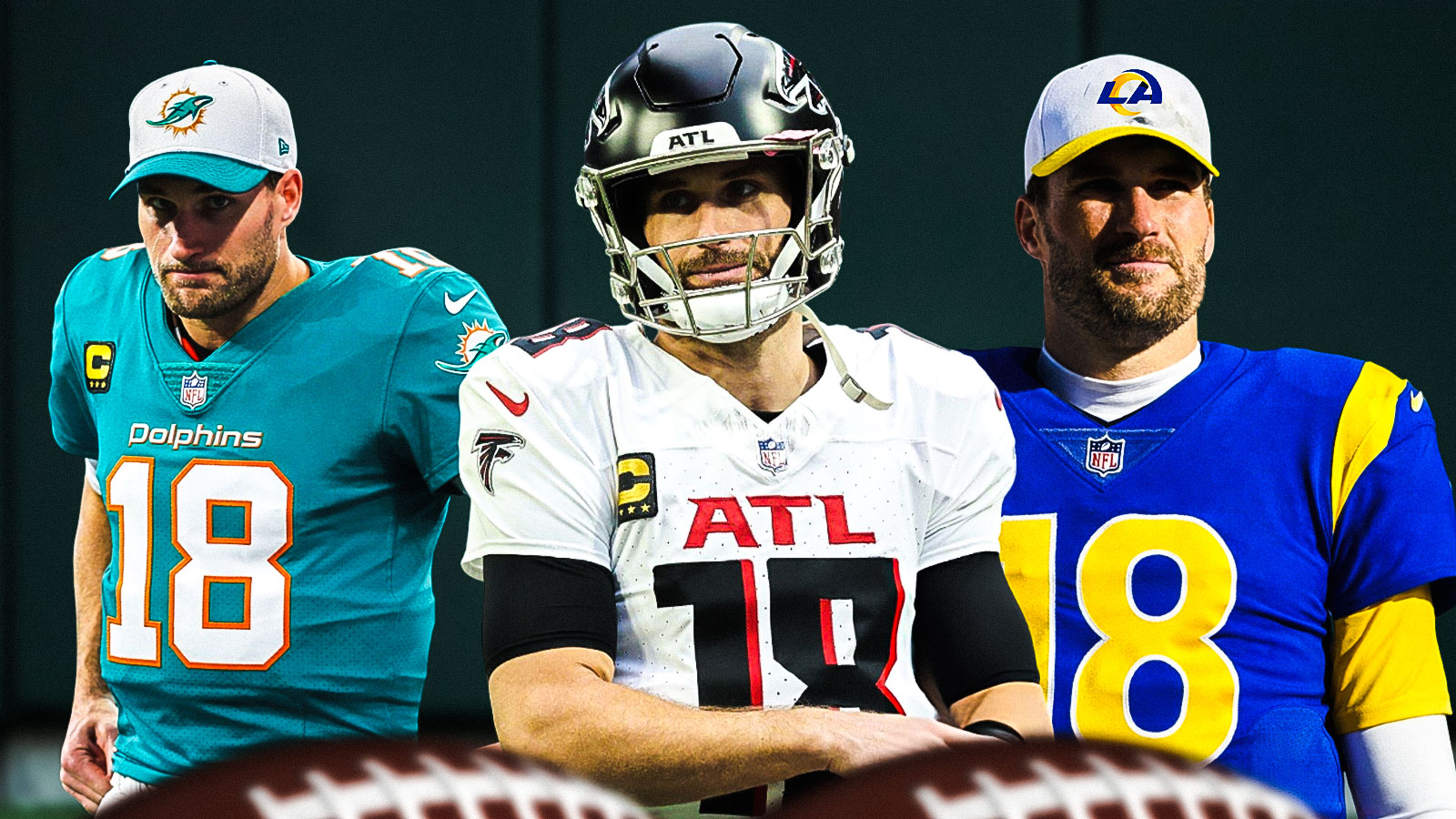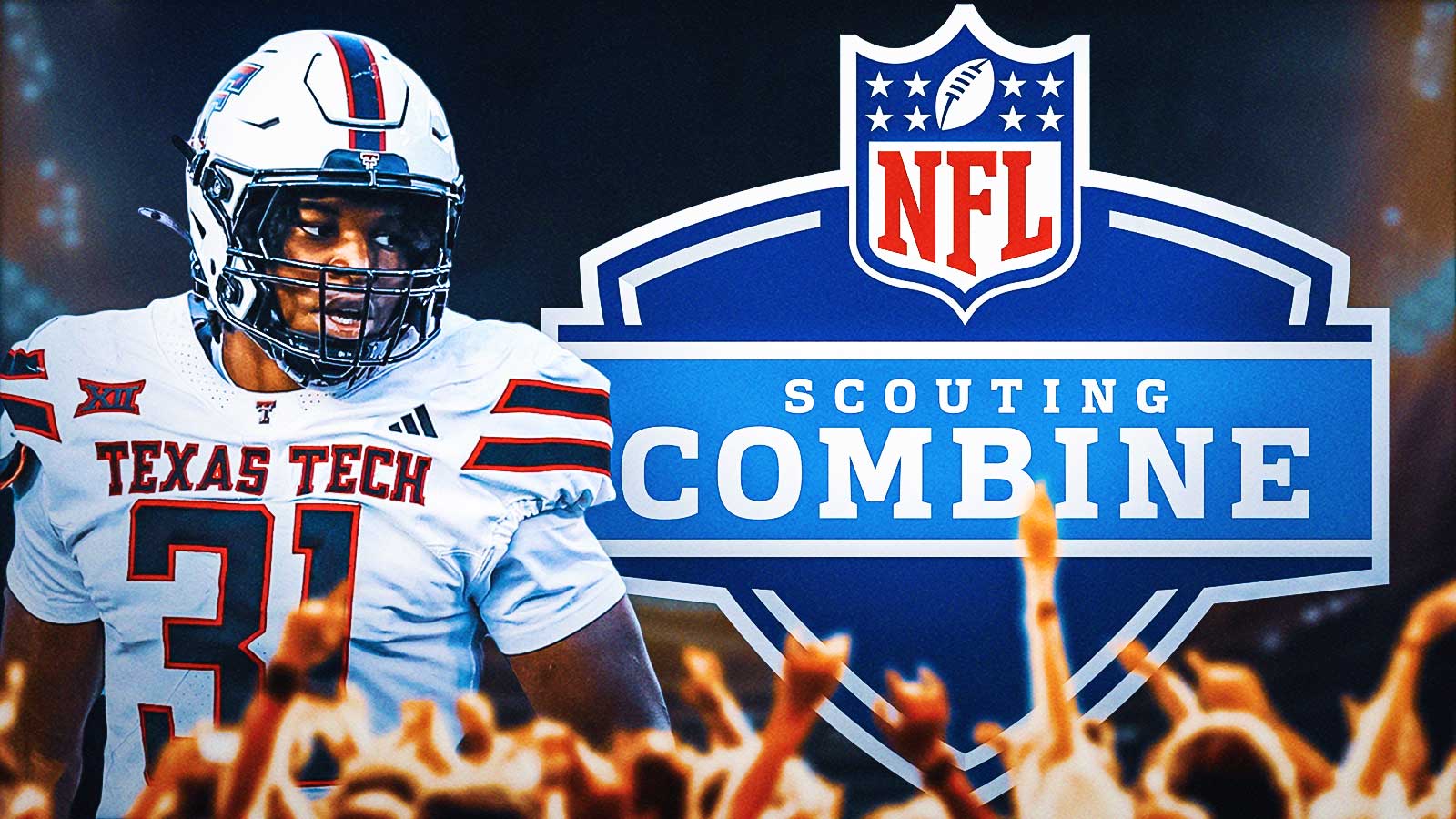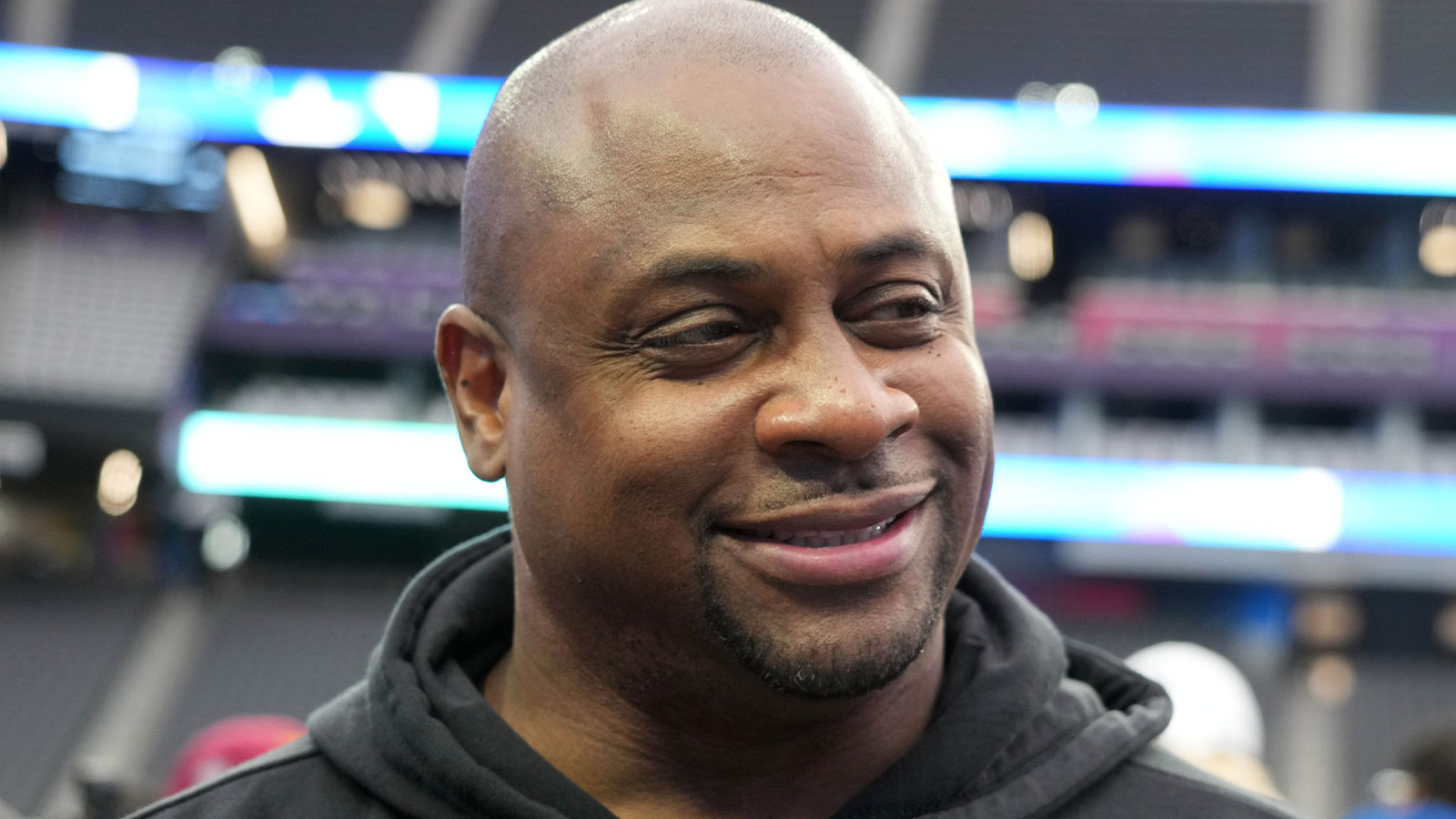The 2024 NFL offseason will feature a ton of big names in free agency. However, not all of the stars with expiring contracts will hit the open market. The franchise tag allows teams an opportunity to retain their best players, and in this article, we will explain everything that you need to know about it, including position values, when the deadline to tag players is, and what players are franchise tag candidates.
What is the franchise tag?
The franchise tag is a designation that NFL teams can give to their upcoming unrestricted free agents. It is a one-year, albeit pricy, contract that teams usually use on their best players with whom they have been unable to reach contract extension agreements with but that they still want on the team.
There are two types of franchise tags, and each team is allowed to use the franchise tag once per year. The first type of franchise tag is called the exclusive franchise tag. This is a one-year contract worth no less than the average of the top-five salaries at that player's respective position or 120 percent of the player's previous year's salary, whichever is more. With this tag, the team has exclusive negotiating rights, meaning the player must sign the franchise tag, or else he is not allowed to sign elsewhere for the entire next season.
The other franchise tag is called the non-exclusive franchise tag. This is also a one-year contract. It is worth no less than the average of the top-five cap hits of that player's position or 120 percent of the player's previous year's salary, whichever is greater. With the non-exclusive tag, players are allowed to negotiate long-term contracts with other teams. If they intend to sign a contract elsewhere, the tagging team can either match the contract or let the player go in exchange for two first-round draft picks.
There is also the transition tag, which is less commonly used. Instead of this contract being worth the average of the top five salaries for a position, it is the average of the top 10 contracts for a position, making it a little bit more of a bargain. However, there is also more risk. If a player is given the transition tag but agrees to a contract elsewhere, the tagging team will lose the player for nothing if they don't match the contract.
Franchise tag position values
A player can be tagged a maximum of three times in their career. Their second year getting tagged ensures that their new contract will be worth 120 percent of their previous contract. A third time being tagged gets a player a deal worth 144 percent of their last year's salary. The positional franchise tag values for 2024 are below.
Quarterbacks: $38,301,000 (non-exclusive), $34,367,000 (transition)
Running backs: $11,951,000 (non-exclusive), $9,765,000 (transition)
Receivers: $21,816,000 (non-exclusive), $19,766,000 (transition)
Tight ends: $12,693,000 (non-exclusive), $10,878,000 (transition)
Offensive linemen: $20,985,000 (non-exclusive), $19,040,000 (transition)
Defensive ends: $21,324,000 (non-exclusive), $19,076,000 (transition)
Defensive tackles: $22,102,000 (non-exclusive), $18,491,000 (transition)
Linebackers: $24,007,000 (non-exclusive), $19,971,000 (transition)
Cornerbacks: $19,802,000 (non-exclusive), $17,215,000 (transition)
Safeties: $17,123,000 (non-exclusive), $13,815,000 (transition)
Kickers/punters: $5,984,000 (non-exclusive), $5,433,000 (transition)
Deadline to tag player

The league needs to know if players will be given the franchise tag or not before free agency opens up. That means there is a deadline to tag players, and this year, that comes on March 5 at 4 p.m. ET. The window to tag players officially opened up on Feb. 20.
Last year, six players were given franchise tags. These players were Lamar Jackson, Evan Engram, Daron Payne, Josh Jacobs, Tony Pollard, and Saquon Barkley. The former three eventually agreed to contract extensions with their teams, while the three running backs are at risk of being tagged again. If those running backs are not tagged, then they will hit the open market.
The Cincinnati Bengals have already tagged Tee Higgins. Higgins is a part of the reason the Bengals have one of the best receiving corps in the NFL, and he is getting paid because of it. The team will surely try and negotiate a long-term deal with their receiver, but for now, he is set to make $21,816,000 on a one-year deal.
Candidates to get the franchise tag
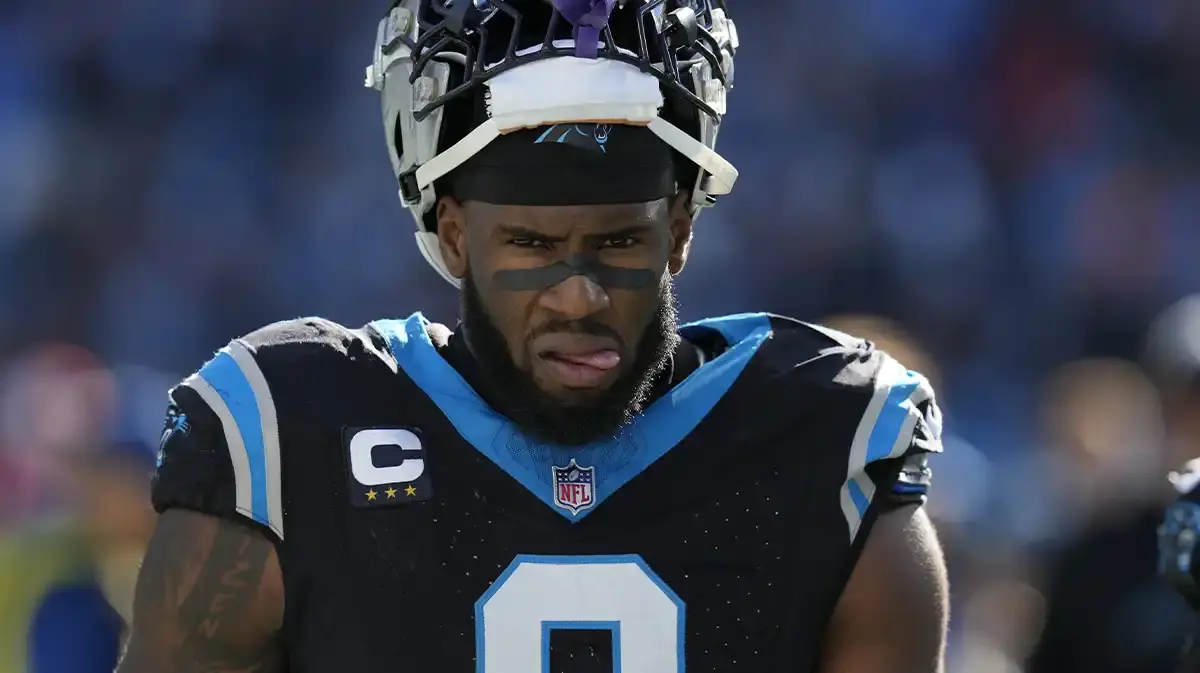
Higgins won't be the only player to get the franchise tag. Considering this year's free agent pool has tons of star talent, there will surely be a number of players who get the tag.
It is already expected that Josh Allen, the edge rusher for the Jacksonville Jaguars, will be tagged by Jacksonville. Allen shares a name with the popular Buffalo Bills quarterback, but the defensive Allen has established himself as one of the best players at his position as well. The Jaguars have brought in many defensive players in recent years to turn the team around, but Allen is the player who makes it all work. The team is so close to breaking out, so they can't afford to lose the edge rusher who was second in the league in sacks last season (17.5).
Like the Jaguars, the Dolphins are an up-and-coming team with loads of talent on defense but with the best player on their front seven hitting free agency. Christian Wilkins is a former first-round pick, and he has lived up to his draft status. The Dolphins have several superstars on both sides of the ball, and they surely won't want to lose Wilkins for anything. Star players get paid star player money, which means the financials are starting to get a little tight in Miami. The team just announced that they plan to release Xavien Howard, and that move may have been made with retaining Wilkins in mind.
One big-time defensive player who may not get the franchise tag is Chris Jones. The Chiefs' star made about $25 million last season, which means his franchise tag number will be about $32 million. That may simply be too big of a pill for the Chiefs to be able to swallow, which means the team may prioritize L'Jarius Sneed as the player they want to franchise tag. The Chiefs have been known for their offense in recent years, but it was the defense that led the way en route to the team's third championship in five years. Sneed was a big reason why, and he shined in the spotlight during the Chiefs' playoff run.
Brian Burns, Antoine Winfield Jr., and Jaylon Johnson are all defensive players who are candidates to be franchise-tagged as well. The Carolina Panthers have refused to trade Burns in recent seasons, so it wouldn't make much sense to let him walk in free agency for nothing now. Winfield Jr. and Johnson are both young. They are two of the rising stars in the league in the defensive secondary, and it is always smart to retain young players entering or in their prime.
While this free agent class is dominated by defensive players, some players would make sense to get the tag who play offense. If the Tampa Bay Buccaneers use the franchise tag on Winfield, they couldn't use it on either Mike Evans or Baker Mayfield. Either of those players would make sense to be tagged, though.
Mayfield is the best quarterback set to hit free agency. With him coming off of his best season in the league, he has earned the chance to start for Tampa Bay next season. He doesn't necessarily have a sustained history of greatness, though, so the team might not want to lock him up long-term until he proves a little bit more. The franchise tag would be a great way to do that. Evans has long been one of the best and most underrated receivers in the NFL, and it would be weird to see him playing for a team besides the Buccaneers.
Saquon Barkley is also a candidate to receive the franchise tag, and he is perhaps the most likely to be tagged in back-to-back offseasons. The New York Giants seem unwilling to give the running back a long-term deal, but they don't have a great replacement for Barkley either, meaning another one-year deal seems likely.

